

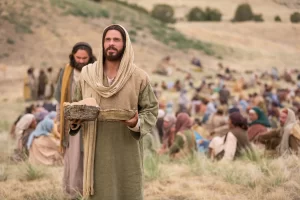
We have four different versions of the gospel.
Matthew and Mark, Luke and John, have each written an account of Jesus’ life.
They have recorded for us the words and actions of Jesus.
We can read about his preaching, his travelling through Palestine, his healing people.
The evangelists have not written in the form of what we call nowadays ‘a biography’.
Their purpose was not to relate all the details of Jesus’ life.
Coming close to the end of his text, John reveals to us his aim in writing:
“Jesus performed many other signs in the presence of his disciples,
which are not recorded in this book.
But these are written that you may believe that Jesus is the Messiah, the Son of God,
and that by believing you may have life in his name” (John 20:30-31).
Believing, not in a set of propositions – even if they are true.
Believing, not in a series of facts – even if they can be proved.
Believing, not in a list of events – even if they have really happened.
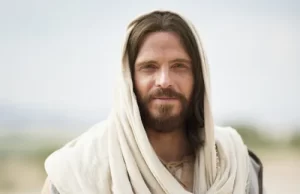
But believing ins SOMEONE – “Jesus as the Son of God”.
Believing in him… Trusting him… Relying on him…
John assures us that believing in this Man-God, Jesus, we will have life.
This is the very reason why Jesus came to live among us – he said it openly:
“I have come so that they (the people – all of us) may have life and have it to the full” (John 10:10).
Life now… Life later… Life for ever…
A life that exceeds all we could dream of, or hope for…
“God whose power works in us, can do infinitely more than we can ask or imagine…” (Ephesians 3:20).
Note: Another text is available on a different theme, in French, at: https://image-i-nations.com/2e-dimanche-de-paques-annee-b-2024/
 “Go to the village ahead of you, and just as you enter it,
“Go to the village ahead of you, and just as you enter it,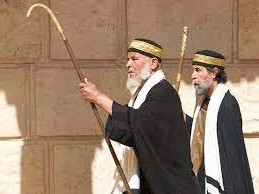 reported also by the evangelist Luke (Luke 19:39-40).
reported also by the evangelist Luke (Luke 19:39-40).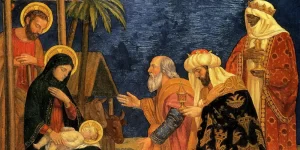 On this feast of the Epiphany, we meet Wise Men who were faced with this (Matthew 2:1-12).
On this feast of the Epiphany, we meet Wise Men who were faced with this (Matthew 2:1-12). A stone rolled away…
A stone rolled away…
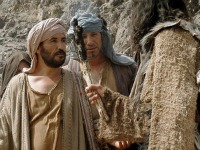

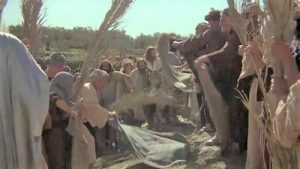 On the day when Jesus entered Jerusalem acclaimed by the crowd as king, his close friends could not figure out how and why he agreed to this display of admiration.
On the day when Jesus entered Jerusalem acclaimed by the crowd as king, his close friends could not figure out how and why he agreed to this display of admiration.

 « The disciples had failed to understand… that he must rise from the dead. » (Jn.20:1-9)
« The disciples had failed to understand… that he must rise from the dead. » (Jn.20:1-9)